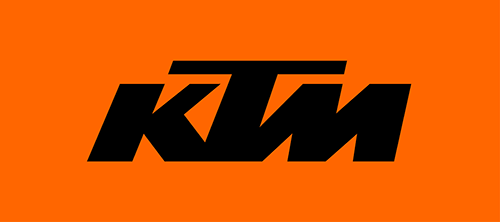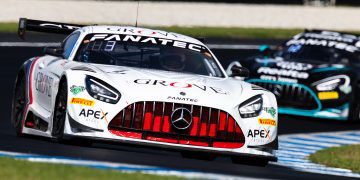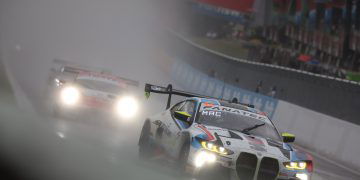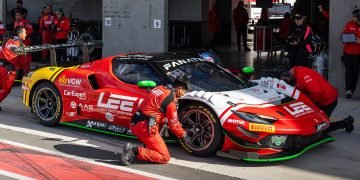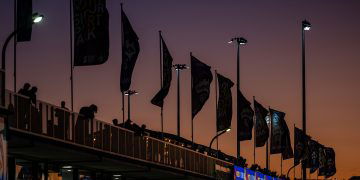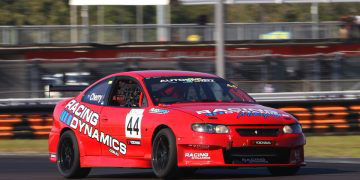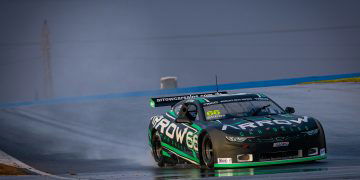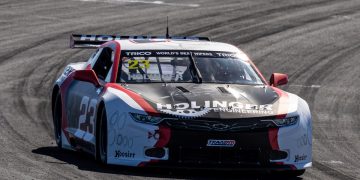
Concern surrounding tyre failures for Max Verstappen and Lance Stroll at the Formula 1 Azerbaijan Grand Prix continue to linger in the F1 pitlane.
Pirelli issued a statement in the lead up to last weekend's French Grand Prix, though it offered little in the way of concrete findings.
It did however insinuate that teams were flouting regulations designed to protect the tyres, though stopped short of outwardly finger pointing.
For Paul Ricard, a Technical Directive was issued clarifying what teams could and could not do.
While making no changes to the regulations itself, the directive did outline how the FIA can monitor and enforce them.
Verstappen and Stroll both suffered high-speed tyre failures in Baku, pitching them into solid concrete barriers at near terminal velocity.
Off the back of Pirelli's statements following those incidents, plus the technical directive, opinion within the paddock is mixed.
Some seem satisfied to use the topic as a means to score points in the media against their rivals, while others hold genuine concerns.
“It's a real and serious problem that we've got to get on top of,” said Aston Martin's Otmar Szafnauer.
“I think we're lucky to only break the car and not anything else. So, we've got to make sure it doesn't happen again.
“We will follow the new prescriptions. We have always been within the parameters that both the FIA and Pirelli set for us.
“We followed all the prescriptions to the letter, and we were never ever under the minimum pressure,” he added of the Baku incident.
“So, we had stabilised pressures, they were higher [than the minimum]; that's normal, that's usually what happens.
“The pressures on the grid that were checked [and] were above the minimum.
“So I don't know what their expectations were.
“I would imagine their expectations are that the pressure comes up, but that's exactly what happened with us.”
While not dismissive of the technical directive issued ahead of the French Grand Prix, Red Bull's Christian Horner was circumspect.
“They don't really change the way we're operating, but it's the same for everybody,” he observed.
“There are lots of words that don't say a great deal, but it's more an administrative thing than anything else.
“We've always adhered to Pirelli's guidelines and the FIA rules, that's what we'll continue to do.
“I think it's good that the FIA are taking it seriously, ultimately, as safety is their responsibility and those guidelines, they're there for a reason,” he added.
“But the difficulty with all of these things is, how do you deal with a wet/dry race, how do you deal with those kind of scenarios?”
McLaren's Andreas Seidl was reserved in any criticisms of Pirelli but did highlight the need for clarity.
Specifically, he wants more detail on the failures, noting that neither McLaren had issues in Baku.
“If we look at our car for example in Baku, if you were running the car within the regulations and fulfilling the prescriptions from Pirelli, there was no issue with the tyres,” he said.
“So that's why I think it will be important for everyone, for the entire paddock, to have transparency in, and understanding, what actually happened and what was causing these failures in the end.”
His view was shared by Frederic Vasseur, Alfa Romeo team boss.
“We don't have access to the data as of the accident or the punctures,” he explained.
“That means that it's difficult for us to have a clear picture.
“For sure, if someone was running with lower pressure, you have two options – either they start with a lower pressure, or they were running in a lower temperature, but we don't know.”
Joining the chorus seeking greater detail was Verstappen himself, who was less than satisfied with the answers given to him by Pirelli heading into the weekend.
On Friday evening in France the drivers met with Pirelli where the Azerbaijan issues were discussed.
“Definitely before the meeting, there was a little bit of a lack of clarity,” explained Daniel Ricciardo.
“Was it the other teams kind of breaking the rules; was it really not giving us something good enough?
“I think we left the meeting with a better understanding,” he added.
“I'll be honest, I don't understand tyres, or the technology involved but I was a little more at ease after our chat.”
It's believed that during that meeting Verstappen and Lewis Hamilton disagreed, their positions seemingly unchanged even following Sunday's race.
“I don't have any problems with what was said in the meeting,” Hamilton said.
“I guess, as I said the other day, I was surprised that things needed clarifying because we thought it was clear, but clearly not.
“So I am grateful that the FIA have clarified the steps that people need to take, and I heard they're obviously putting things in place to make sure policing is done better, so that's all we can ask for.”
Verstappen did not share his championship rival's opinion, stating the situation had still not been fully explained.
“I'm happy of course with how everything is, let's say, better policed,” he said.
“But I'm still not happy with the explanation of what happened in Baku because I don't think it's fully clear, at least for people outside, the fans.
“I know what happened, the team knows what happened but it's very confusing what they put out,” he added.
“But it's fine, life goes on, we just keep on going.
“Hopefully from now on we can just be safe in the car, and nothing happens.”





